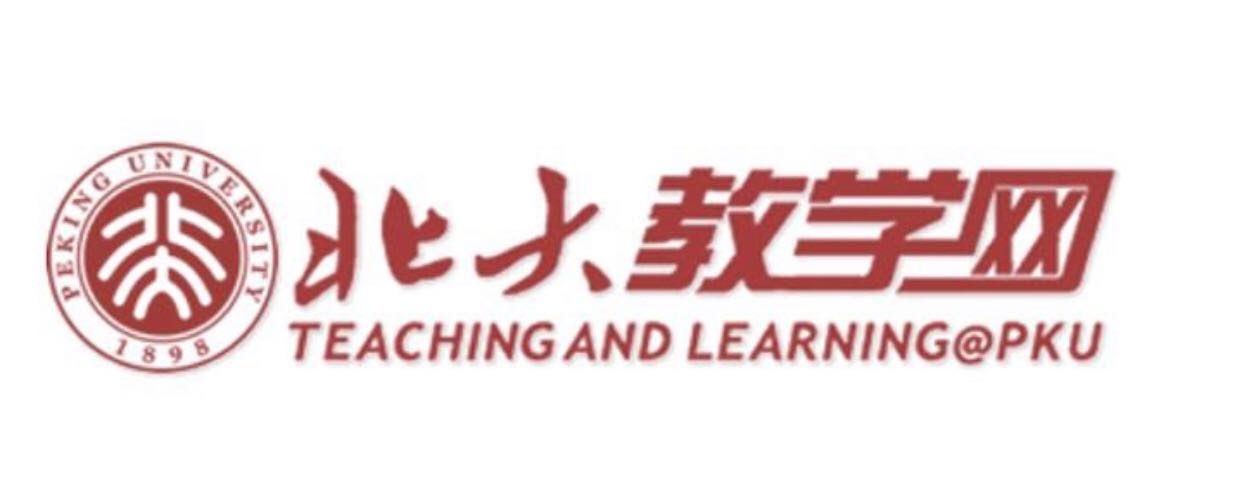查道炯
查道炯于2007年9月开始在北京大学国际关系学院工作。他的教学和研究集中关注当代中外关系中在非传统安全领域的课题,包括能源/矿产、粮食、海洋、公共健康、跨境水资源管理等。在地区/国别关系方面,他更关注中国与亚洲和太平洋地区(包括东南亚)其它国家间的互动,兼顾中国与欧洲、中国与非洲国家在经济领域的关系发展。近年,他的研究领域拓展到中资企业跨国投资政治与社会风险管理。他力图从与国际组织、政府机构、跨国企业的互动中汲取新知,努力为促进不同层面的中外务实交流做贡献。
他曾经在中国人民大学国际关系学院(2003-2007)、日本国际大学(1997,1999-2003)、宫崎国际大学(1998-1999)、澳门大学(1995-1997)从事全职教学工作。并在亚洲协会(美国纽约,2014年),罗伊国际政策研究所(澳大利亚,2013),新加坡南洋理工大学拉贾拉特南国际研究院(2009, 2011)、香港大学公共行政与政治学系(2006年)、密西根大学福特公共管理学院(2003、2006年)、中欧大学 (匈牙利,2001)等机构从事短期教学或研究。
他于1986年从安徽大学本科毕业并获英美语言文学学士学位。在1989-1995年间,他先后在美国中部华盛顿大学、夏威夷大学Manoa校区以及东西方中心学习,并获得政治学博士学位。
主要学术兼职:
北京大学海上丝路研究院 特约研究员(2017-)
北京大学海洋研究院 教授 (2014-)
北京大学 非洲研究中心 研究员(2011-)清华大学 公共管理学院 产业发展与环境治理研究中心 学术委员 (2008-)
中国农业大学国际发展研究中心 国际发展研究网络 成员 (2013-)
Comparative Politics 期刊 编辑委会成员 (2017-)
Asian Politics and Policy 期刊 编辑委会成员 (2010-)
中国国际交流协会 第十届理事会 常务理事
非传统安全概论 (本科生课程,中文讲授)
全球性议题研究 (硕士、博士研究生课程,中文讲授)
非传统安全研究 (硕士生课程,英文讲授)
国际政治经济学 (硕士、博士课程,英文讲授;北大南南合作与发展学院课程)
国际政治经济学理论(博士生课程,中文讲授;与学院同事合作)
国际政治经济学前沿 (博士生课程,中文讲授;与学院同事合作)
地区与国别研究 (博士生课程,中文课程;与学院同事合作)
中资企业境外投资的政治与经济风险管理
跨国能源安全追求的新维度
中外关系中的非传统安全议题
《“一带一路”案例实践与风险防范丛书:经济与社会篇》,海洋出版社,2017年。与龚婷合作主编。
《中国境外投资环境与社会风险案例研究》,北京大学出版社,2014年。与李福胜、蒋姮合作主编。
Managing Regional Energy Vulnerabilities in East Asia: case studies, Routledge, 2012. 主编。
Building a Neighborly Community: post-cold war China, Japan, and Southeast Asia, Manchester, UK: Manchester University Press, 2006。 第一作者;第二作者是香港大学胡伟星教授。该书在2013年被出版社主动重印 (ISBN-13: 978-0719070655 // ISBN-10: 0719070651)
《中国学者看世界:非传统安全卷》,北京:新世界出版社,2007年。分册主编。
《中国石油安全的国际政治经济学分析》,北京:当代世界出版社,2005年。作者。
China's International Relations in the 21st Century: Dynamics of Paradigm Shifts (Lanham,USA: University Press of America, 2000. 主编之一,另两位主编:香港大学胡伟星教授、奥克兰大学陈智宏教授。
期刊论文/书中章节(未特别注明,均为独著)
能源话题
1. “一带一路:合作逻辑与能源安全”, 《人民论坛 学术前沿》,2017年第4期。
2. “关于当前世界能源安全形势的分析与思考”,《人民论坛 学术前沿》, 2016年第11期。
3. “’一带一路’不可忽视的非商业风险”, 《中国电力企业管理》,2015年7月。
4. “能源企业海外合作挑战分析”, 《国家电网》,2015年6月。
5.“北美能源局势的变化与中国的能源安全“, 史丹主编,《中国能源安全的国际环境》(北京:社会科学文献出版社,2012年),第1-33页。
6. “非洲石油:美国的新目标”, ”中美关系中的能源问题,” 周琪主编,《美国能源安全政策与美国对外战略》,北京:中国社会科学出版社,2012年,第九章、第十章【第二作者:张鹏】
7. “当前世界能源格局下,中国应选择什么样的国际油气战略,”《世界石油工业》,2012年第6期,第40-44页。
8. “拓展中国能源安全研究的课题基础”,《世界经济与政治》,2008年第7期。
9.“中国在非洲的石油利益:国际政治课题”,《国际政治研究》,2006年第4期。
10.“Energy security in China-European Union relations: framing further efforts of collaboration”, Contemporary Politics, 21:3, 2015.
11.“Outlooks on Chinese Energy Security Vulnerabilities”, Chapter 3 in Mike M. Mochizuki and Deepa M. Ollapally (editors), Energy Security in Asia and Eurasia (Routledge, 2017), pp. 36-59. Co-authored with Robert Sutter.
12.“Debating Energy Security in China: ideas and policy options”, Chapter 3 in Fengshi Wu and Hongzhou Zhang (editors), China's Global Quest for Resources: Energy, Food and Water (Routledge, 2016), pp. 42-58.
13.“Energy Security”, Chapter 8 in Mely Caballero-Anthony (editor), An Introduction to Non-Traditional Security Studies: A Transnational Approach (Sage, 2016), pp. 135-153.
14.“Energy Security in EU-China Relations: Framing Further Efforts of Collaboration”, Chapter 5 in Jakub M. Godzimirski (editor), EU Leadership in Energy and Environmental Governance: Global and Local Challenges and Responses (Palgrave Macmillan, 2015), pp. 113-133.
15.“Sino-Indian Interactions in Energy in the 2000s: a Chinese perspective”, Chapter 7 in Kanti Bajpai and Jing Huang (editors), China-India Relations: Cooperation and conflict (Routledge, 2015), pp. 130-143.
16. China and the Middle East in a New Energy Landscape, Asia Program Research Paper, Chatham House (Royal Institute of International Affairs), October 2015. Co-authored with Michal Meidan.
17. "China's Perspective: The Search for Energy Security" in Crux of Asia: China, India, and the Emerging Global Order, edited by Ashley J. Tellis and Sean Mirski (Washington, DC: Carnegie Endowment for International Peace, 2013), 209-220.
18. “China and Iran: Energy and/or Geopolitics,” in Mikkal Herberg, et al., Oil and Gas for Asia: Geopolitical Implications of Asia’s Rising Demand, Washington DC: The National Bureau of Asian Research, September,2012, pp. 19-28.
19.“Energy Security: just like everyone else”, China Economic Quarterly, March 2012, pp. 28-33.
20.“Oiling the Wheels of Foreign Policy? Energy Security and China’s International Relations,” in Shaun Breslin, editor, Handbook of China's International Relations, Routledge, 2010, pp. 64-75. Co-authored with Professor Shaun Breslin, Warwick University.
21.“Energy in Sino-American Relations: Putting Mutual Anxiety in Context”, Strategic Analysis, 31:3, 2007.
22.“Promoting Energy Partnership in Beijing and Washington”, The Washington Quarterly, 30:4,2007. Co-authored with Hu Weixing.
粮食话题:
“观察中国的海外粮食可获得性:中美交往史的视角”,《中国国际战略评论 2011》,北京:世界知识出版社,2011年,第369-377页。
“国际政治研究与中国的粮食安全,”《国际政治研究》,2010年第2期。
“粮食外交的中国认知(1979-2009)”,《国际政治研究》,2010年第2期【第一作者:刘宇】。
“Food in China’s International Relations,” Pacific Review, 26:5,2013.
地区国别研究话题
南海话题
“南海地区功能性合作:中国的视角“, 《中国-东盟研究》第二期(广西大学),2017年。
“The South China Sea: the energy factor”, in Jing Huang and Blake Berger (editors), States, Institutions and International Law in the South China Sea dispute, Palgrave Macmillan (forthcoming in 2017).
“Wither the South China Sea Dispute”, Global Asia, 11:3, 2016, pp. 77-79.
“What Now for China?”, Chapter 5.4, in Yang Razali Kassim (Author, Editor), The South China Sea Disputes: Flashpoints, Turning Points and Trajectories (World Scientific, 2017), pp. 397-400.
澜沧江-湄公河跨境水资源利用
“A Political Ecology of Hydropower Development in China”, Chapter 3 in Nathanial Matthews and Kim Geheb (editors), Hydropower Development in the Mekong Region: Political, Socio-economic and Environmental Perspectives (Routledge, 2015), pp. 32-53.
中资企业对外投资话题
傅若兰、查道炯, “应对发达国家市场准入的策略分析:以中资企业进入澳大利亚为例”,《当代亚太》, 2014年第1期。
“Chinese FDI in Australia, drivers and perceptions," July 2013, Lowy Institute for International Policy, http://www.lowyinstitute.org/publications/chinese-fdi-australia-drivers-and-perceptions

